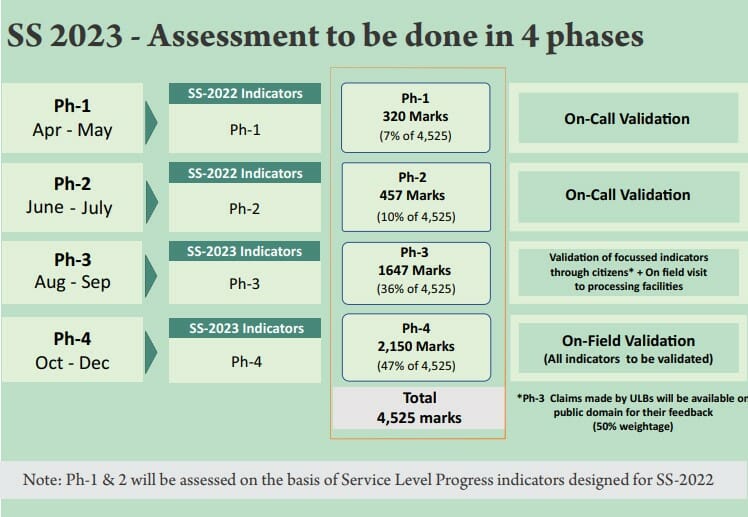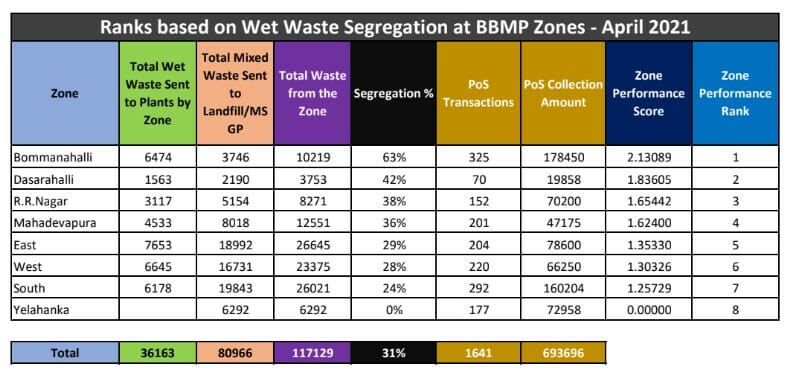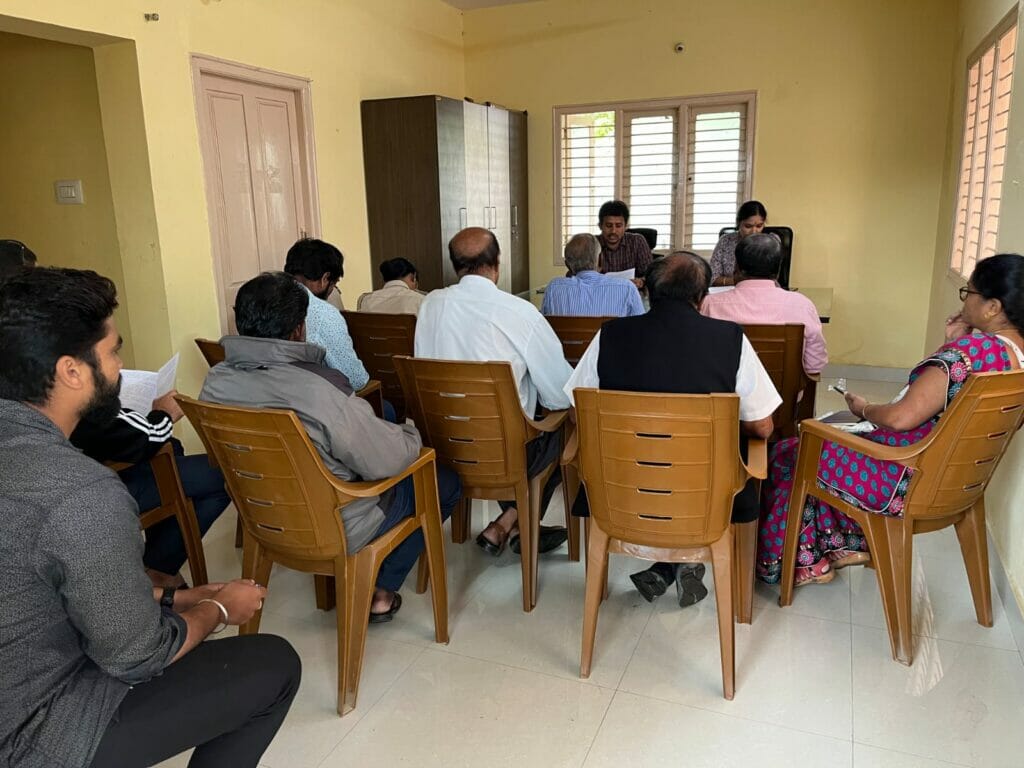In order to fix Bengaluru’s bad reputation for its garbage-lined streets, dysfunctional public toilets, and sanitation infrastructure, the BBMP has decided to join the bandwagon for Swacch Survekshan 2022. Bruhat Bengaluru Mahanagara Palike’s Solid Waste Management system has announced the Swacch ward ranking competition, conducted every month, under the ward committee’s supervision.
This is part of Swacch Survekshan, which was introduced by the Ministry of Housing and Urban Affairs (MoHUA) in 2016, to foster healthy competition among cities and residents to improve the state of urban sanitation and cleanliness at ward levels. According to a circular, the seventh edition of this competition is being carried out by nearly 3,000 assessors across the country.
As per the toolkit, furnished by MoHUA, the initiative was aimed at encouraging large-scale participation and improving sanitation delivery systems at decentralised levels.
The criterion
The competition, which is to be held every month, will be conducted by ward committee members, says a Standard Operating Procedure document by the BBMP Special Commissioner’s Office. The assessments of the wards are being conducted from April 2022 to December 2022.

Every ward will be marked against ten parameters, each amounting to ten marks. These include ensuring there is door-to-door collection of segregated waste from all households within the ward, community groups managing wet waste through generators, composting and adhering to the ban on single-use plastic among others.
The marks are also awarded on the basis of no open litter, urination or defecation in the surroundings. Community or public toilets in every ward has to be geotagged or uploaded on Google maps, with residents ensuring that the toilets are clean, functional and usable.
“Our ward committee has to go to the neighbouring ward to assess them against these parameters and award them a ranking,” says Padmashree Balaram, a ward committee member and President of the Koramangala Residents Welfare Association.
The ward jury consists of members of ward committees, ward-level nodal offices, Resident Welfare Associations (RWAs), Non-Governmental Organisations (NGOs), hospitals, schools etc. All 198 wards, across the eight BBMP zones, will be considered for this assessment.
Basis for ranking
As per the 2021 rankings, the Solid Waste Management cell of BBMP awarded zone, division and ward-wise ranks for waste segregation. Bommanahalli, Dasarahalli and RR Nagar achieved 63%, 42%, and 38% respectively to top the rankings.
“We have monthly data on rates of segregation per ward,” says Santhoshkumar Kaddi, Assistant Executive Engineer, Solid Waste Management. He also agrees that home composting is not feasible for all households.

Residents have been working with Joint Health Inspectors (JHIs) and Assistant Executive Engineers (AEEs) to monitor how many auto tippers or compactors are deployed, how many of them are collecting mixed waste, etc.
Read more: What Bengaluru’s scientific waste management can teach the Swachh Bharat mission
Talking about how effective such rankings are, Padmashree says that where there is an active citizenry, these competitions can bear fruit. “Sometimes we also forward the ward rankings to the local officials, so they are probed to get work done.” When asked if competitions such as these absolve the officials of their responsibility to maintain public facilities for sanitation and waste collection, she disagrees and says this in turn makes residents more vigilant of the officials’ work.
How has the competition fared?
“We also had JHIs and AEEs come visit our ward to look at the best practices and see if those can be replicated in their respective wards,” says Shanthi Tummala, founder of the HSR Citizens forum and member of Solid Waste Management Round Table (SWMRT), adding that the knowledge transfer and understanding of best practices can help the city as a whole.
But have all factions of the city benefitted from this?

“How the wards perform is directly linked to the calibre of the ward committees. Those with strong and vocal committees have performed well, but those wards whose committees have rarely convened, have suffered,” Padmashree says. “Waste segregation is being carried out well in low-income neighbourhoods like the Rajendranagar settlement,” says Santhosh, crediting the awareness drives that have emphasised the need for waste segregation.
Read more: No one can deny your right to attend your ward committee meeting
As per a survey, conducted by Janaagraha, between August 2020 and September 2021, 5% or 11 wards had not conducted a single Ward Committee meeting. 17% of the wards surveyed had a track record of conducting 27 meetings within the survey period as well as adhering to the meeting mandates.
Shanthi also comments that at a national scale, tier-two cities have been performing better than their metropolitan counterparts.